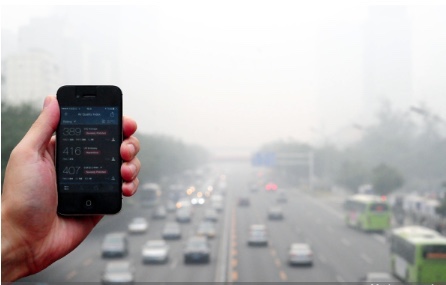Our Beijing-based Climate Change & Air Quality Program team share what they are reading and talking about

- The New Yorker magazine explores how data transparency has been a huge factor in moving air quality issues forward in China. Environmentalist Ma Jun believes China is better equipped to implement a policy of radical transparency on this issue than any other country in the world. This is because in China, the local government has been directly monitoring emissions for decades, whereas in the United States, the Environmental Protection Agenda relies largely on self-reported data from companies. At the Paulson Institute, we are working closely with partners to look at how increased use of data analytics can both create good policy and enable new business models and new markets.
- On Monday, China issued new guidelines to help standardize the way big industrial firms measure and report their greenhouse gas emissions. This represents one step forward toward the launch of a national carbon market targeted for 2016. We have previously noted that many analysts believe the 2016 start date is overambitious, and that the year 2018 seems like a more realistic start date.
- The American Chamber of Commerce released its annual Business Climate Survey, which found for the first time in the survey’s 17-year history that most companies are having greater trouble recruiting senior executives to work in China because of air pollution. The survey included responses from 477 member companies, with more than three-quarters having a presence in Beijing. In related news, a new study from the international relocation company UniGroup Relocation found that twice as many people moved out of China than into the country in 2014.
- A new study published in The American Journal of Epidemiology found that the odds of completing suicide are 20% higher for people exposed to high concentrations of fine particulate matter (PM2.5) in two or three days before their deaths. The research did not find a causal relationship, but suggested that higher levels of pollution might interact with other factors to increase the risk of suicide, according to the lead researcher Amanda Bakian Ph.D. of the University of Utah.


